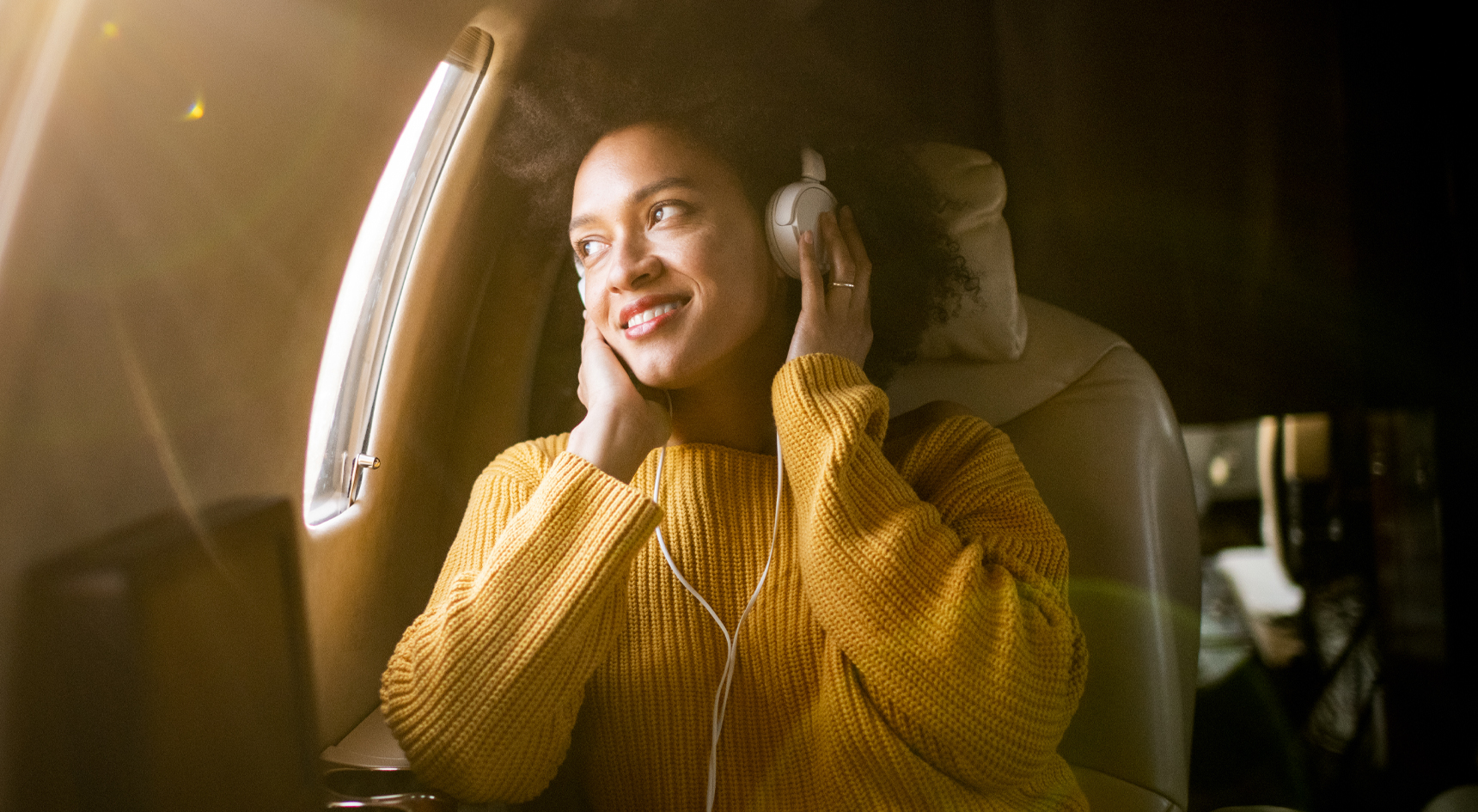4 ways to reduce the risk of motion sickness

Car sickness, sea sickness and air sickness can make travelling a challenge. Some people get motion sickness riding a roller-coaster, playing a video game or even watching a movie with shaky camera shooting style.
These ailments go by different names and are seemingly caused by unrelated factors. Yet they’re all motion sickness and essentially caused by movement.
Reacting to surrounding stimuli, body senses send mixed messages, the brain gets confused and that makes us feel sick. Common symptoms include nausea, vomiting, dizziness, headaches, sweating and excess saliva.
Women, especially when they’re pregnant, and children aged between two and 12 are most at risk.
The good news is that motion sickness doesn’t usually last for more than a few hours after movement stops. Symptoms should ease once you pull over, arrive at the station, dock in the port or touch down on the tarmac.
But until then, what can you do? Here are some tips and tricks that may help.

1. Turn to ginger
Ginger is a popular option to try and reduce queasiness. At least, that’s what our grandmothers told us.
Ginger tea can sometimes be a go-to when tackling motion sickness or nausea. Simply slice or grate the ginger, soak it in hot water and enjoy a comforting beverage.
If hot tea isn’t possible while travelling, try ginger lollies.
Chamomile tea is also another suggestion that some say has benefits, especially when it comes to an upset stomach. It might also help you relax and ease stress and anxiety.
We can’t tell you for sure if these will work, but at the very least, it can’t hurt to try.
Make sure you sip slowly. Don’t gulp. Drinking fast might make the nausea worse. As always, be sure to consult your doctor before trying new things as some teas react to certain medication.

2. Essential Oils
Some aromatherapists will say peppermint and spearmint are great for headaches and vomiting, while lavender has a calming effect and reduces stress and anxiety levels. Basil, ginger and sweet citrus are sometimes said to have properties that help settle the stomach.
The limitations of travel mean you can’t enjoy a relaxing bath or the soothing aroma from a diffuser. That leaves you with topical treatment.
As essential oils are highly concentrated, it’s not advised you apply it directly onto your skin, but you could try diluting them with a carrier such as coconut oil, avocado oil or grape seed oil.
Carrier oils allow you to cover more body area, helping the skin absorb the essential oil and prevent skin irritation. Fragrance-free hand or body lotion can also do the trick.
Apply the blend to your skin, covering areas such as the neck, temple, forehead, stomach and wrists. You can also use a cool compress on your forehead or across the back of your neck.
In a hurry? Simply smell the aroma of the essential oil straight out of the bottle for a few seconds.
Remember to always consult your doctor before using essential oils, especially if you suffer from an allergies or other condition, or if you’re pregnant. If nothing else, at least you’ll smell nice.

3. Mind over matter
Distractions could help when it comes to empowering the mind to think of anything except the swirling feeling in your belly. Embracing activities like listening to music or engaging in good conversation might be worth a try.
Motion sickness bands are also popular with travellers. All you have to do is put on a wristband. The concept behind motion sickness bands is that they might work into an acupressure point on your wrist.
These are widely available in most travel stores and chemists, as well as your local RAA Shop.
When seeking comfort, food can be the answer. Kind of.
A salty cracker isn’t going to stop the gurgles when your boat is tackling big waves or you’re thousands of feet in the air flying through air pockets, but it might take your mind off things for a moment.
Likewise, lozenges are by no means a medical miracle, but mint, lemon or, as we pointed out, ginger, might help settle some of the nausea. A new meaning to the sugar pill.

4. Pick the right seat
Some people like a window seat, others an aisle. Your seat preference may make a big difference to the enjoyment of your expedition; however, did you know that where you sit can also make a difference when it comes to motion sickness?
Taking control of the movement is one way that can help. If that isn’t an option, sitting in the front can help you focus on the steady horizon.
Given motion sickness can be caused by the imbalance between your sight, sound and body’s movement, giving yourself a steady point to focus on can help eliminate some of the cues causing you to fall out of sync.
Forward-facing window seats on buses and trains and the wing section on a plane are sometimes considered preferred spots for that reason.
Looking forward to that dream cruise but dreading high seas wreaking havoc on your gut? You could consider booking a cabin at the front or centre of the ship, preferably on a lower level closer to water.

For a smaller vessel, like a boat, the middle of the upper deck is said by some to be the best place to sit. This might differ according to individuals.
Fresh air might help. Wind down a window or get out, stretch and go for a walk. If that isn’t possible, open an air vent.
The horizon can be a spectacular sight. Many recommend focussing on a fixed point to ease nausea.
You may find activities such as reading, watching movies or working on your laptop make it worse. If you need something to do, you’re in luck because music can be a welcome distraction.
Other tips given by travellers include lying down, controlling your breathing, avoiding alcohol consumption, eating smaller meals and staying well-hydrated. We can’t promise these will help alleviate motion sickness, but just experiment and find what works for you.
Please consult your doctor if you are concerned about motion sickness, as they will be best-placed to advise you on a remedy that suits your individual circumstances.

